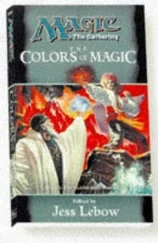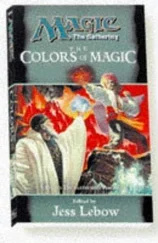What he referred to, I assumed, was the fact that our all-night vigils of wine and card games at the court would sometimes invite a different kind of performance. It took place in a roomy tent, which the empress had ordered to be pitched right inside the grand hall of the Winter Palace. The night I entered that tent—my first and last time—the darkness was impenetrable, and when several hands put a blindfold around my eyes, I gathered that I was supposed to play a game of catch. Once my eyes were covered, candles were lit. Laughing, the ladies told me no peeking, and that I would only be let go if I caught the empress herself. I was inebriated, and the dancing lights did marvels for my weakened sense of balance. I tripped and fell, hot wax splattered onto my blindfold, and when I tried to sit up, it felt as though a great multitude of lively bundles of fabric resisted me. At length I captured one bundle and tore my blindfold off. “Prince Velitzyn,” they chirped, “you are breaking the rules!” and blew out their candles.
As a child I had always imagined that ladies’ dresses were cavernous on the inside, not unlike a church cupola, and in the center of it, their mysterious legs hung lonely and cold. But once I applied myself—in that tent—to finding the said cupola, the task was more like unraveling an onion. Only with difficulty did I find flesh among cloth, and as I exploratively sent my hand up to the apex, my catch shrieked, “Stop it!”
I withdrew, apologizing. My blindfold was reinstated. I fumbled on, somewhat less able to enjoy myself amid their nimbleness and laughter. I did not so much bump into the empress as was goaded to do so, and I held on to her for balance; even so, we both fell onto some cushions. Her laughter was conveyed to my ears over the shaking terrain of her bosom. She finished with a sigh and leaned on me. I captured her plump hand on my face and planted a respectful kiss; her rings smelled of metal and shed skin trapped in gemstone mountings, and they abraded my lips when she pulled the hand away. A palm, presumably hers, alighted on top of my blindfold, and a hand authoritatively unbuttoned my breeches, located my loins, and proceeded to inspect their state. I quivered, then yielded as she plied, cooing out mysterious clipped phrases such as Apraksiya, silly thing, has thought up three trunks of nonsense . Then, suddenly, she pulled her busy hand out and now used it to remove the blindfold and palpate my forehead. “Daddy dearest,” she remarked, “this can’t be right.” She studied my face. “My prince, are you well?”
I pulled my knees up and said yes, but her motherly face remained concerned, even frightened. “Look at you—white as canvas, cold as ice. Go, daddy dear, go and get a good sleep. No more drinking for you. Go!”
I got on my feet, buttoned up, and went. She said, “Oh, and send praporshik Svetogorov to me, will you?”
* * *
When I approached the table, Svetogorov slammed a joker onto a fan of cards. I said, “Paul? Your turn.” He smirked while half a dozen others scrutinized me. A few of them chaffed me, and I could hardly contain my double embarrassment: I had been groped by the august lady and then—for whatever reason—failed to satisfy her.
“Gentlemen—not a word!” Svetogorov intervened. “Let him be.” He poured me a shot, which I refused, then, once on his feet, he put his hand over my shoulders, encouraging me to walk with him. “No big deal, no big deal,” he consoled, looking into my face. “The first pancake always comes out botched, that’s all.”
“What pancake?” I protested.
“The pancake, ” he affirmed with significance and gave my shoulder a squeeze. “Sleep it off.” With that he cocked his chest—“Watch me”—and dived into the tent. I was seventeen then, he was almost twenty. The empress was nearing fifty. In the autumn of that same year she fainted in the middle of the road, walking from her church to her apartments. She fell into her own crinoline, I remember, and it caved in around her like a sinkhole. A bad sign.
* * *
There are stories of the empress’s favorites and their vertiginous ascents to power, but my story is not one of them. Neither is Svetogorov’s; whereas I proved incompatible with Elizaveta’s amorous exercises, he lacked the smarts to turn his superb goings and comings into a strategic gain. But he remained my defender and always repelled regimental fun-pokers when they took aim at my unhappily enduring chastity. It was a myth of Svetogorov’s making—that I was highly principled, a man of the purest discretion. I was grateful that he had my back.
In retrospect, the memory of those years is embarrassing in its entirety. It is hard now even to conceive that goodhearted, cheerful savagery that passed for our code of honor; that strange mixture of the lurid and the naïve that fed our famous loyalty. Our tight poise on duty and drunken debauchery off-duty was a logical impossibility of the same kind as Svetogorov’s, when—in my company—he would discharge himself into a prostitute, pushing into her from behind with compulsive urgency, and afterward take up his guitar and sing, moist-eyed, about romantic devotions. Nowadays our hyperventilation before our Lady-Colonel would fool no one; the truth that lay at the bottom of it, heavy as a drunk’s stare, was that we were a power, we were feared—and it was intoxicating. When poor Elizaveta passed away (less than two years after my failure in her “tent”), her praetorian teddy bears dethroned her nephew and successor, Peter the Third, after he reigned for only six months because we just did not like him, and it did not matter what the Great Chancellor Prince Cherkassky, or the French ambassador, Marquis de la Chétardie, or the English ambassador, Sir Hanbury Williams, imagined about their own cleverness and the reach of their bribes. Peter the Third’s wife, Ekaterine, better known as Catherine the Great, was installed, backed by our bayonets; we obtained ourselves another Lady-Colonel.
This happened in the summer of 1762. I remember marching onto Peter the Third’s Palace—a show of force our commanders put together so that Ekaterine could intimidate Peter into abdication. She was at the head of us, on horseback, dressed in our uniform. Excitement was all around me, men feeling momentous. As for me, I marched with one thought foremost: What was so wrong about me that it was repelling women?
* * *
The one important consequence of 1762 was that we made peace with Prussia. Andrei could come home—and so he did, after a two-year stopover in Poland, where Russian troops were propping up a newly elected king.
Andrei came back a man with a jaw set so hard that he barely smiled or spoke; a dull man who refused to entertain civilians and ladies with stories of his military feats. He came back merely a captain of infantry, and this modest advancement in rank prompted Paul Svetogorov to opine that Andrei was either inept or disliked. I wondered the same.
Our reunion was formal.
Yet my attention did not dwell on it too much because another subject preoccupied it—I had fallen madly in love. She was seventeen, a diminutive beauty with chestnut curls and stunningly dark brows and eyelashes that framed curious and demanding eyes. She turned those eyes upon me first, she chose me! She came to watch our drills, among other ladies and their male custodians (we were being made into a gentler, more European, showcase). Eventually, we were introduced. Prince Alexander, allow me to present to you Countess Marie Vassilievna Tolstoy … Countess—the Leib Guard subporuchik Prince Alexander Mikhailovich Velitzyn … She was so tiny! She looked up and I stooped down, bowing. She blushed. I was hers, right there and then.
Читать дальше












